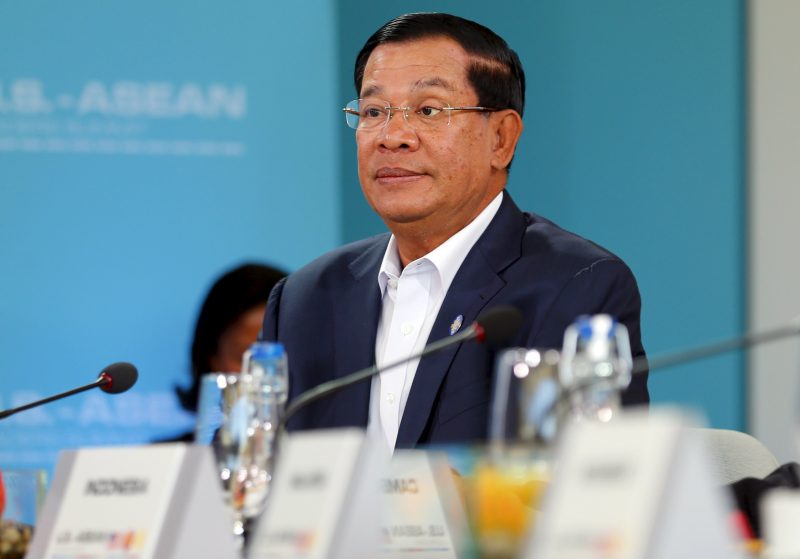Prime Minister Hun Sen on Monday called for commercial banks and microfinance lenders to help Cambodia’s rice farmers by reducing interest rates for farmers struggling with low prices for paddy rice.
Speaking at a ceremony for the opening of a 172 km stretch of National Road 76 linking the northeast provinces of Ratanakkiri and Mondolkiri, Mr. Hun Sen said the government had been seeking new markets for Cambodian rice, but lenders could help in the meantime.

“I would like to appeal to microfinance institutions that granted loans to people to please understand people’s suffering as the price of paddy rice is dropping,” he said from Ratanakkiri’s Lumphat district.
Prices for rice paddy sank from $250 per ton in the middle of August to $192 per ton in early September to $150 per ton ahead of the Pchum Ben holiday. A month ago, the average rice paddy price climbed back to $230 per ton, but farmers remain anxious about its volatility.
Last week, the National Bank of Cambodia also issued a statement asking commercial banks and microfinance institutions to find ways to lower interest rates for agricultural businesses, especially the rice sector.
However, reducing interest rates will prove problematic, according to a sampling of banks and microfinance lenders.
In Channy, the CEO of Acleda Bank, which has branches throughout the country, said on Monday that competition had already driven down interest rates “so it does not need anyone’s appeal for it to be lowered, which means there is no need for the National Bank to appeal because the market is the one that determines” rates.
“We have an obligation to pay interest to depositors, which means if we promise to pay interest, say, 5.5 or 6 percent per year for their deposits, we dare not to betray them, and so we have to pay them back,” Mr. Channy said.
Yun Sovanna, secretary-general at the Cambodia Microfinance Association, of which nearly 50 member microfinance institutions are members, said the current annual interest rate for farmers was about 24 percent and that any reduction would be challenging.
“It is a good request, but the… determination of an interest rate requires many factors and situations are different from one microfinance institution to another, from one service to another, and that’s why it is difficult,” he said.
Chan Mach, CEO of Kredit Microfinance, said lowered interest rates for rice farmers would cause a ripple effect, so it would need to be studied.
“The suggestion cannot be responded to now until there is a discussion in the whole sector, because there are many varieties in agriculture, including rice, cassava and rubber,” Mr. Mach said. “Microfinance institutions have burdens of high operations costs and interest payments to foreign lenders.”
“If necessary, the National Bank could request an exception, but the exception is just temporary, not for the long-term,” he added. “There has to be a collective discussion.”
Mr. Hun Sen said Cambodia was poised to export about 5 million tons of paddy rice this year, mostly to the E.U., with smaller amounts to Vietnam and China, and he acknowledged the government needed to find new export markets.
He said he understood farmers were suffering because of the reduction in prices as “people need to sell paddy rice to get money for paying back the debt to microfinance institutions or banks that [they] all borrowed money from.”
But he urged farmers to dry the rice and hold on for better prices.
“I think that if our citizens have a little patience, the traders will not be able to lower the price,” he said.



